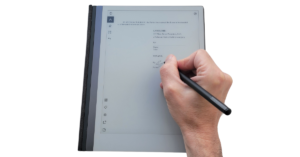As people increasingly favor the comforts of dining out, entertainment, and travel over the daily grind of commuting, many are opting to work remotely from scenic or more affordable locations for extended periods. The allure of diverse rental options across the United States makes this a viable dream. However, without meticulous planning, remote workers might face financial surprises, such as double taxation.
The Impact of Residency on Taxes
Your tax obligations are invariably tied to your state of residency. Understanding what constitutes residency for tax purposes is crucial:
- Primary Home: You are considered a resident of a state if it’s your primary home, the place you intend to return to permanently.
- Physical Presence: Spending more than half the year (over 183 days) in a state could also establish residency there.
Consequently, if you reside in one state but spend significant time in another, you might be subject to taxes in both, particularly if your physical presence in the second state exceeds 183 days.
Strategies to Manage Income Tax in Multiple States
Many states have measures to prevent double taxation and ease the financial burden for remote workers:
- Tax Reciprocity Agreements: Some states have agreements that allow residents to avoid double taxation on income earned across state lines. For example, Illinois residents are not taxed on income earned in neighboring states like Kentucky, Michigan, Iowa, or Wisconsin, though income earned elsewhere may still be taxable.
Dealing with Convenience Rules
Certain states including Massachusetts, Connecticut, Nebraska, Delaware, New York, and Pennsylvania employ “convenience rules” for tax purposes. Under these rules, if your employer is based in one of these states, they can withhold state income tax from your wages, even if you live and work remotely from another state. This can come as an unpleasant surprise for remote workers relocating to states with lower tax rates.
To effectively manage this:
- Establishing Domicile: Consider formally establishing your domicile in the state with lower taxes by obtaining a driver’s license, registering to vote, and possibly registering a vehicle there. Most importantly, ensure you spend at least 183 days in this state to solidify your tax residency.
Navigating the complex landscape of state tax regulations can be daunting for remote workers. It’s advisable to consult with a tax professional to understand the specific requirements and opportunities in your home state and any state you plan to work from remotely. This preparation helps in making informed decisions and avoiding the pitfalls of double taxation, ensuring a smoother and more enjoyable remote working experience.




